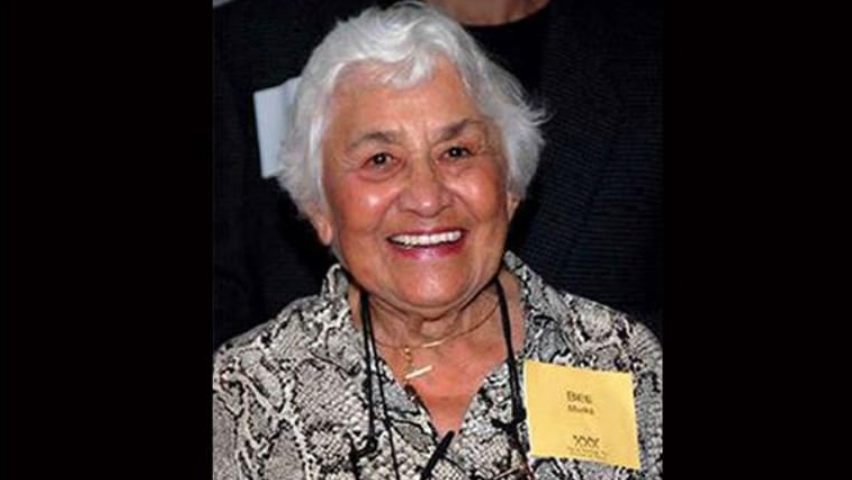Earlier this year, PR Week asked marketing and communication professionals, “What is an influencer?” Notable, considering the rise of influencer marketing, there was no consensus among those polled, with the most common definitions referring to social media personalities with high followings.
With all the talk about influencers, not only is it getting lost what they actually are, but also missing in the conversation is: what authority does an influencer have to influence in any given space or industry?

There is a need to not only better define what an influencer is, but also dimensionalize their authority, especially in my corner of the industry, where I work with food and wellness brands. I have started to use different vernacular to differentiate between different types of authority. As I recently discussed with Forbes, I define an “expert with influence” as someone who has education and credible training in a specific knowledge area or skill, like a registered dietitian does in the area of nutrition. I define a nutrition influencer as someone who has authority on the topic of nutrition with their social media audience, though they may only have personal experience or a passion for the subject.
The authority of influencers is a hot topic in the registered dietitian community, as rigorous coursework, supervised practice and passing a national exam is required to earn this credential. More than 10,000 registered dietitians are heading to Philadelphia this weekend for the 102nd annual Food and Nutrition Conference and Expo (FNCE®), where Ketchum is hosting a panel discussion about the Evolution of Nutrition Influencers.
As part of the panel discussion, we will look specifically brand partnerships. An influencer’s authority should be considered when selecting brand partners, as a brand looking to build long-term credibility or shift perceptions will want to look for a different type of influencer than one interested in building immediate product awareness.
Different types of authority address different objectives for a brand. Here are three things marketers should consider about authority when developing influencer strategies…
Influence does not just exist on social media:
Influencer is a term that evolved as marketing channels have evolved. Before social media, companies such as Bzz Agents formed communities in order to inspire word-of-mouth recommendations. Today, social media influencers form their own communities in their followers, and brands want to tap into that. But most influencers aren’t influential outside of social media. Experts with influence, on the other hand, have a different type of authority, one that reaches far beyond the online space. For example, they are sought out by the media for their subject matter expertise, hold leadership positions in professional associations and consumer advocacy groups, and the scientific research they conduct has the potential to impact policy. Their social media presence is secondary to how they influence others in their professional roles. The take-away for brand marketers: When considering influencers as partners, think beyond the quantity, engagement and reach of social media posts and consider how experts might have the authority to influence in other ways.
Interest and experience are not expertise:
Personal testimonials can be a compelling way to inspire others, especially as it relates to making dietary changes and implementing self-care routines, but sometimes an influencer’s own experience and what worked for them is not grounded in scientific evidence. In some cases, unsubstantiated claims won’t have negative consequences. While the advice might not actually help (although it may “feel” like it does), it won’t cause any harm. As reported last week in the NY Times, while claims that celery juice is beneficial for a range of ailments, including inflammation and high blood pressure, are unsubstantiated, it’s not likely drinking it will cause harm in healthy individuals. But in other cases, unsubstantiated claims can be dangerous and there were recent occasions (for example, Goop’s fine for claims about jade eggs and the senate’s investigation into influencer detox teas) where regulatory bodies got involved to prevent an influencer’s message from leading to consumer harm. When evaluating brand partners, the scope of an influencer’s authority to deliver certain messages must be considered. It can be dangerous for those without the proper training, even if they have a specific condition themselves and are an active voice in online communities, to position themselves as experts.
Influence should not be a popularity contest:
Data-driven recommendations lead to the greatest ROI. Reach, relevance, resonance, and other social media metrics are typically examined when identifying and evaluating influencers as brand partners. But how influential someone may be is more than just about how an Instagram Story or Facebook post performs. How can the influence of those with subject matter expertise that transcends the online space be most effectively and objectively evaluated to help inform an influencer strategy? We believe in the power of influencers of all kinds and we are constantly examining and assessing different types of influence to help benefit our clients. In fact, we are working toward creating a proprietary index that evaluates experts with influence using data points that go well beyond traditional social media metrics. This index in development uses the latest in analytics and data science to dimensionalize what it means to have influence, and provides a new way for brands to objectively assess potential partners who have subject matter expertise. Influencer identification is always a combination of art and science, and the index will provide brand marketers with another data-driven edge as they shape their influencer strategies.
To learn more about Ketchum’s FNCE panel discussion about the Evolution of Nutrition Influencers, or if you have any questions about this post, connect with me here.



